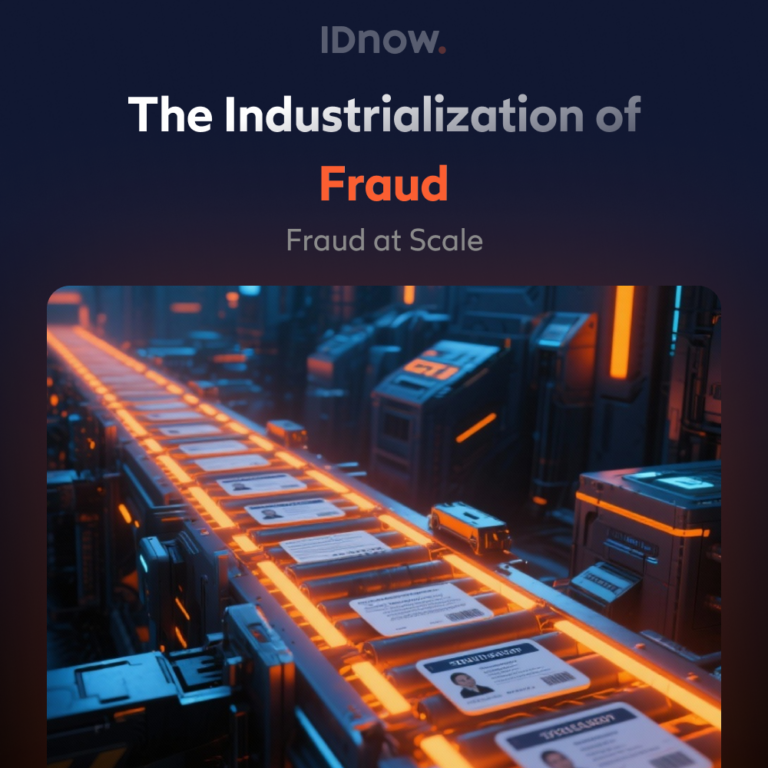We explore how leading companies from your industry are already using digital signatures to unlock valuable business opportunities, and how IDnow’s full suite of solutions can help you catch up.
Digital signatures have become an integral part of daily operations.
Whether to execute simple service agreements or authenticate high-value transactions, increasing numbers of companies from every industry – from financial services to telecommunications – are now asking their customers to sign on the [digital] dotted line.
Global e-signature transactions have actually soared from 198 million to over 4.7 billion in just five years, clearing showing how organizations are embracing more efficient, secure and compliant ways to manage documents.
However, as regulations like eIDAS 2.0, Anti Money-Laundering Regulation and AMLD 6 come into force, choosing the right type of digital signature is becoming just as important as using one at all. While Simple Electronic Signatures (SES) provide a fast and frictionless option and are ideal for high-volume scenarios, Advanced Electronic Signatures (AES) and Qualified Electronic Signatures (QES) offer greater legal assurance, authentication or identification, and cross-border recognition, which are particularly critical for regulated sectors.
Delaying the move to SES, AES or QES, or choosing the wrong digital signature solution, could expose your business to compliance risks and inefficiencies. Now is the time to act.
IDnow is expanding its digital signature offering by adding SES and AES to our existing QES solution. Combined with built-in identity verification capabilities, our digital signature solutions help you not only establish the authenticity of a user’s identity but also confirm that the individual signing is the rightful owner.
To discover which digital signature solution is right for you, check out our blog, ‘From SES to QES: Everything your business needs to know about digital signatures in 2025’.
Top 10 reasons why digital signatures are critical for business success.
Digital signatures can massively improve business efficiency by reducing costs and improving conversions, but that’s not all. Here are the top 10 reasons why businesses like yours are integrating digital signatures into their tech stack.
- Improved ROI: By eliminating the need for paper, digital signatures can slash operational costs and reduce administrative overhead, allowing staff to focus on the more important, higher-value tasks.
- Every signature saves: Although there are considerable price differences between SES, AES and QES, digital signatures can reduce contract execution by 70-90%. For example, when factoring in the costs associated with printing and paper, mailing, archiving, labor time and error correction, a manual, wet ink signature could cost up to €30, whereas even the highest legal assurance QES is available at a mere fraction of that cost and the AES and SES options are even more affordable.
- Faster sales cycles: Digital signatures enable contracts and agreements to be signed and returned within minutes, regardless of location. This streamlined approach shortens sales cycles and enables businesses to start generating revenue quicker.
- Scale sustainably: Of course, accelerated deal closures also allow businesses to process a higher volume of documents and grow their customer base without needing to proportionally increase staff or administrative overhead.
- Regulatory coverage: As AES and QES are legally recognized throughout the European Union under the eIDAS regulation, it allows organizations to conduct business seamlessly across borders, sign contracts with international partners, and comply with local laws. Plus, considering one of the main aims of new and emerging regulatory frameworks like eIDAS is to standardize digital signature usage across member states, it will also drive adoption and boost user confidence.
- Security: Digital signatures ensure the authenticity and integrity of documents, so are a great way to secure sensitive information and protect against fraud attacks and data breaches.
- Future-proof accreditation: If you choose an accredited vendor like IDnow, which is a joint venture partner of the Qualified Trust Service Provider (QTSP), IDnow Trust Services AB, then you can rest assured that your digital signature solution integration will remain compliant even as laws change. Plus, all relevant evidence data will remain archived.
- Environmental benefits: As digital signatures eliminate paper wastage, organizations that integrate digital signature solutions can reduce their carbon footprint and significantly bolster corporate social responsibility efforts.
- Cross-industry/ regional collaboration: Industries are now collaborating more than ever (e.g., healthcare and insurance, financial services and e-commerce), making the need for interoperable solutions like digital signatures essential for optimal business performance, not only in different countries, but in different industries.
- Superior customer experience: Whatever’s good for the customer is ultimately good for the business, as happy customers are loyal customers that can help build brand reputation and drive word-of-mouth growth. Digital signatures offer unparalleled convenience and accessibility, enabling users to register, transact or authenticate within a matter of seconds.
In 2025 and beyond, digital signatures should be considered as much more than mere authentication tools. Digital signatures should be seen as sophisticated trust mechanisms that ensure document integrity, verify authenticity, and provide irrefutable proof of transaction legitimacy
Uwe Pfizenmaier, Product Director at IDnow and Registration Officer at IDnow Trust Services AB
How digital signatures can unlock opportunities in your industry.
Forward-thinking organizations from industries such as financial services, mobility, insurance, HR, telco, retail and e-commerce, real estate, and the public sector are all integrating digital signatures into their trust architecture to strengthen security postures, streamline customer experiences, and create resilient trust ecosystems capable of adapting to the digital challenges of tomorrow.
Here’s how competitors from your industry are currently using digital signatures:
Financial services.
Financial institutions face a unique challenge: delivering seamless customer experiences while ensuring full compliance with regulations like Know Your Customer (KYC), eIDAS 2.0, GDPR, and the upcoming AMLR. Common digital signature use cases within the financial services industry include:
• High-value loans and mortgages.
IDnow’s QES provides the highest level of legal assurance for significant financial commitments, ensuring compliance with regulations.
How it works: Once both parties read the relevant documents and the signer’s identity is verified, the signer applies their digital signature, which is then cryptographically linked to the document and locked to prevent changes. A tamper-evident seal is then generated to create an audit trail that records every action and ensures transparency and legal admissibility.
- Account opening [AES]
- Cross-border transactions [AES]
- Credit card loan contract [QES]
Mobility.
Mobility services require flexible digital signature solutions that work seamlessly across devices and locations, and are crucial for contracts, rentals and compliance. Common digital signature use cases within the mobility industry include:
• Short-term rentals and car sharing.
IDnow’s AES balances security with convenience, allowing users to quickly complete transactions while providing operators with strong identity verification.
How it works: After the mobility provider verifies the identity of all signatories, the lease agreements and related documents are uploaded to a secure digital platform. Once ready to sign, each party is authenticated and signers apply their digital signature, which is securely linked to the document. A complete audit trail is then generated, and a tamper-evident seal is added to the document, ensuring it cannot be altered post-signature.
- Service updates and policy acceptances [SES]
- Long-term lease agreements [QES]
- Vehicle leasing and financing [AES]
- Ride-sharing and rentals [AES]
Telecommunications.
Telecom providers offer digital signature solutions to streamline customer acquisition and policy changes, and as a method of fraud prevention. Common digital signature use cases within the telecommunications industry includes:
• Plan changes and upgrades.
IDnow’s SES offers a streamlined experience for existing customers making modifications to their services.
How it works: After the telecom provider generates a digital document outlining the new plan details, terms, and associated costs or commitments, the customer reviews the document and confirms the changes by applying a digital signature — typically by clicking to sign. The document is then locked, and a digital audit trail is created, recording the time, date, and method of signature.
- ‘High value’ service activation [AES]
- New service contracts [AES]
- Phone exchange [AES]
- Mobile phone financing [QES]
Expert guide to digital signatures.
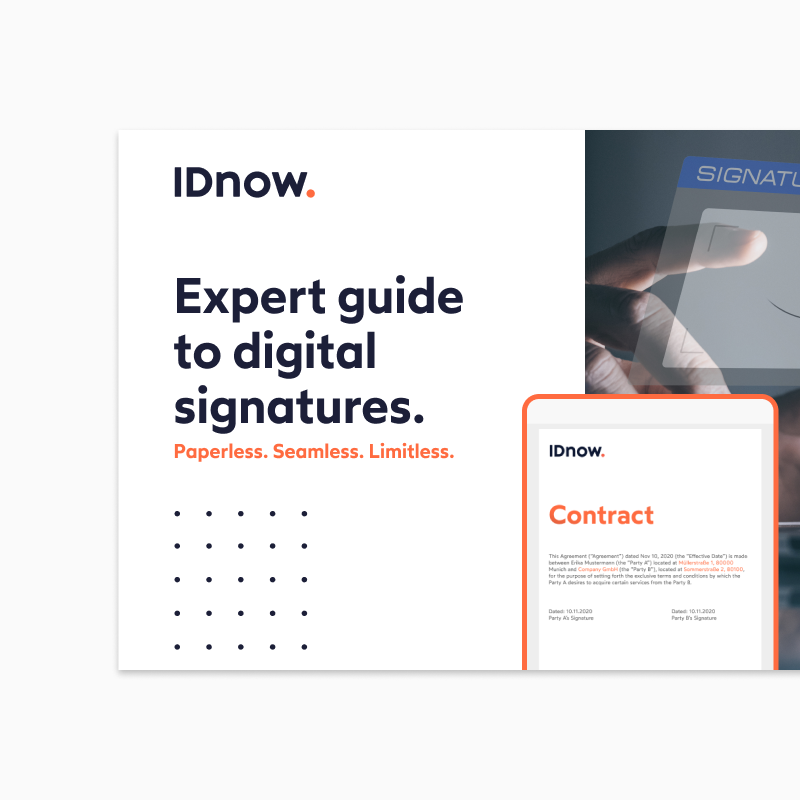
Insurance.
The insurance sector relies heavily on digital signatures to streamline policy issuance and claims processing. Common digital signature use cases within the insurance industry includes:
- Customer consent forms [SES]
- Renewals and endorsements [SES]
- Policy issuance [AES]
- Claims processing [AES]
- Life insurance [QES]
Human Resources.
HR departments use digital signatures to streamline employee lifecycle management, from hiring to offboarding. Common digital signature use cases within the HR industry includes:
- Exit formalities [SES]
- Electronic signatures for internal processes (vacation / travel approvals) [SES]
- Employment contracts [AES]
- Onboarding documents [AES]
- Temporary employment contracts [QES]
Retail + e-commerce.
The retail and e-commerce sectors rely on digital signatures to streamline operations, enhance customer experiences, secure transactions, and ensure compliance with data and consumer protection laws. Common digital signature use cases within the retail + e-commerce industry includes:
- Purchase orders and invoices [SES]
- Subscription services [SES]
- Returns and refunds [SES]
- Compliance with data privacy laws [SES]
- Vendor and supplier agreements [AES]
Public sector.
The public sector leverages digital signatures to modernize services, reduce bureaucracy, improve citizen access to services, and ensure transparency in government processes. Common digital signature use cases within the public sector includes:
- Permits and licenses [SES]
- Procurement and tendering [AES]
- Identity verification [AES]
- Inter-agency collaboration [AES]
- E-government services [QES]
Real estate.
The real estate industry uses digital signatures to simplify complex, document-heavy processes and enable remote transactions. Common digital signature use cases within the public sector includes:
- Lease and rental agreements [SES]
- Agent and broker contracts [AES]
- Property sale and purchase agreements [QES]
- Mortgage documents [QES]
- Title deeds and transfers [QES]
Understanding different digital signature solutions.
IDnow offers a comprehensive suite of digital signature solutions to satisfy whatever the required legal assurance or industry use case. What’s more, as IDnow offers trust services via IDnow Trust Services AB, customers benefit from streamlined procurement and contractual simplicity by receiving both identity verification and trust services from a single, unified process with a trusted vendor.
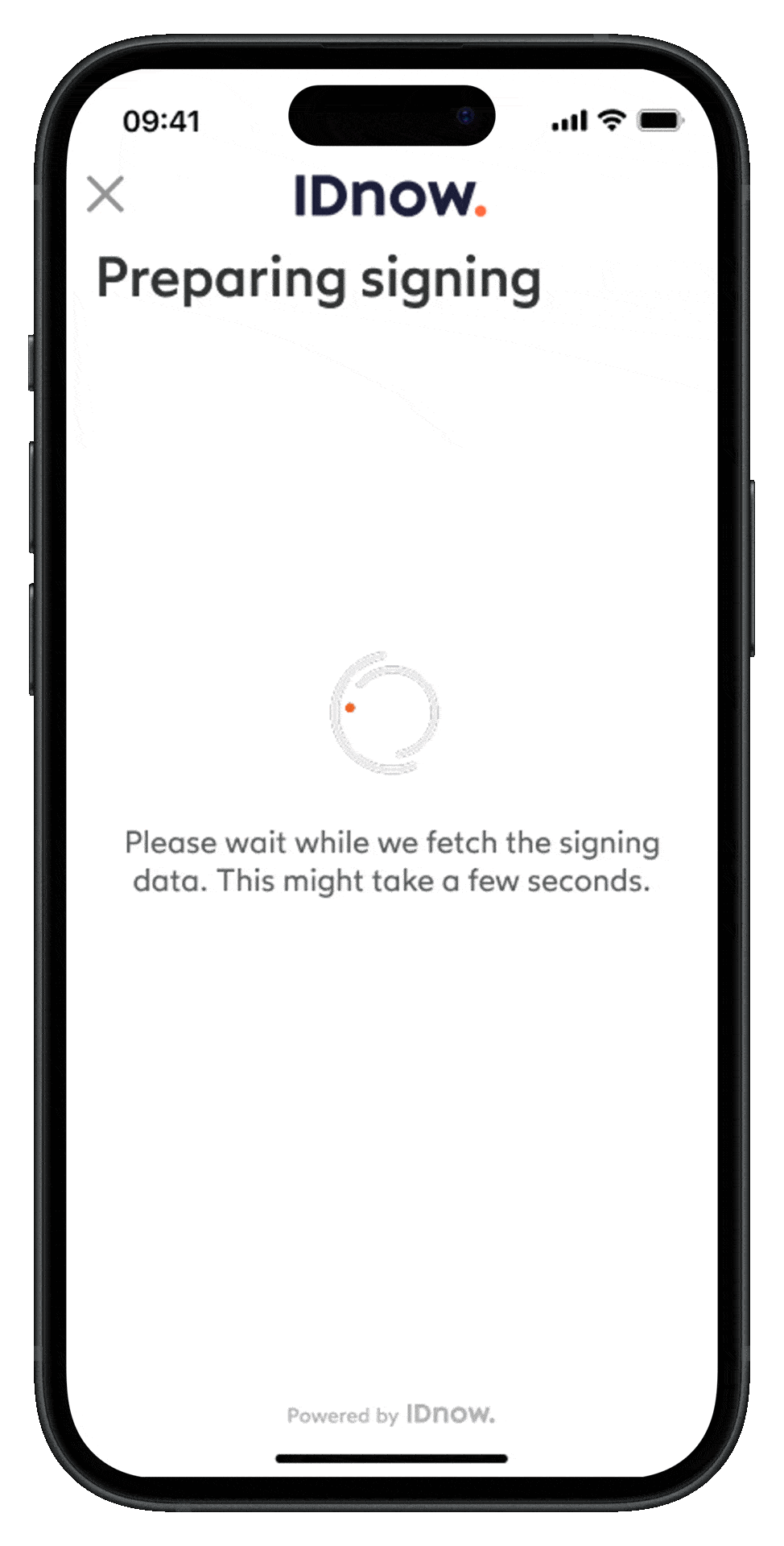
Simple Electronic Signature (SES) is the most basic form of digital signature, providing a straightforward way to indicate consent or approval in digital transactions.
SES solutions are ideal for low-risk scenarios where convenience and speed are priorities.
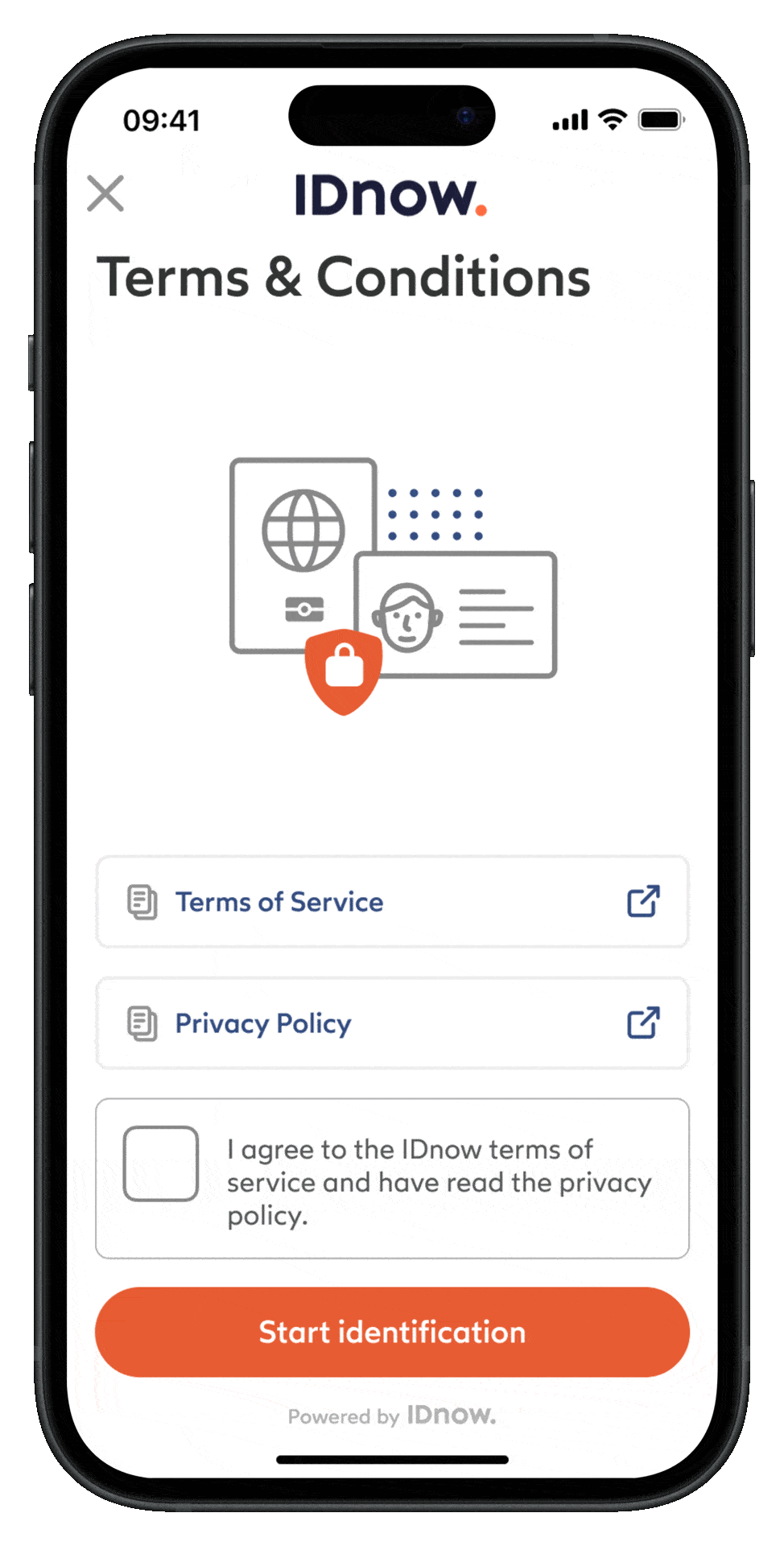
IDnow’s Advanced Electronic Signature (AES) solution provides a higher level of security and authentication than SES.
As AES links the signature to both the signer and the data in a way that alterations are detectable, it is suitable for transactions that require strong identity verification without the full regulatory weight of QES.
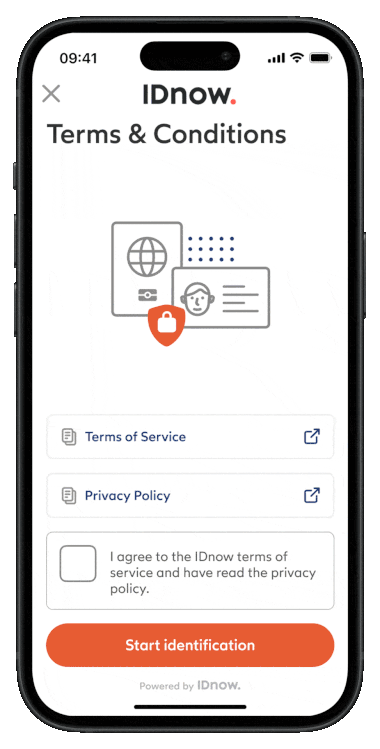
IDnow’s Qualified Electronic Signature (QES) represents the highest security standard and is the legal equivalent of a handwritten signature across the EU under eIDAS regulation.
Created using a qualified digital certificate from a Qualified Trust Service Provider, QES provides maximum legal certainty for high-stake transactions.
5 considerations to help you select the right digital signature solution for your industry use case.
- Regulatory requirements? What level of signature does your industry regulation require for your specific transaction type?
- What is the transaction value? Higher-value transactions generally warrant stronger signature types (AES or QES).
- Risk profile? Consider the potential for fraud or dispute in the specific transaction context.
- User experience priorities? What experience do your customers expect? Speed, security or a balance of the two?
- Budgets and deadlines? Although neither is likely to be the deciding factor as to why organizations would choose one solution over the other, SES and AES can typically be implemented quicker than QES solutions, while SES are considerably cheaper to implement.
Unlocking business benefits, one signature at a time.
Whether you’re in financial services managing high-risk transactions, a mobility provider streamlining vehicle agreements, or a telecommunications company optimizing service contracts, IDnow’s signature solutions provide the tools to transform your document workflows while enhancing security and compliance.
Interested in more information on IDnow’s comprehensive signature portfolio? Check out our blog, ‘From SES to QES: Everything your business needs to know about digital signatures in 2025’.
By

Jody Houton
Senior Content Manager at IDnow
Connect with Jody on LinkedIn


